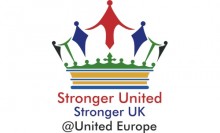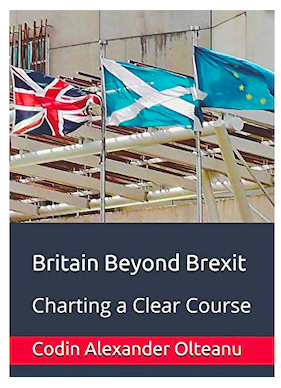The much-touted special relationship between the USA and the U.K. is one of the foundations of British foreign policy. One tends to forget that there is nothing natural about it - that it was forged primarily through the efforts of two men - Franklin Roosevelt and Winston Churchill - during the greatest existential crisis the U.K. had ever experienced - the Second World War - and that it was very much an unequal relationship. The British Prime Minister reluctantly agreed to play junior partner to the American President as a price for US military help and then entrance into the conflict. Churchill played a major role in deciding and shaping all post World War II institutions together with his partners in the White House for the decade following the proclamation of the Atlantic Charter, in 1941 - but he was well aware that it was now not in London but in Washington, D.C. that all critical final decisions were being made. In effect, Churchill agreed to trade Britain’s sovereign powers for access and influence on US decision-makers at the highest levels - allowing it in turn to occupy a special global position somewhat below that of the United States but well above that of any of its European partners.
President Obama and Prime Minister David Cameron hold a joint press conference in the East Room of the White House. May 13, 2013.
This pattern continued across the years with successive pairs of US presidents and British Prime Ministers who always found ways to renew and reaffirm their special relationship: Churchill and Truman, Reagan and Thatcher, Blair and Clinton, and finally even Blair and Bush - both committed liberal internationalists who believed in the use of force against tyrants whenever it could be justified both morally and from a national interest perspective. Yet it was put in question soon after president Obamas election in 2008, when in a symbolic gesture he returned the Churchill bust that had occupied a special place in his predecessor’s Oval Office - a gift from his British friends. This gesture was meant both as symbol of his planned "Asian Pivot" but, even more importantly, as Jeffrey Goldberg cogently argues in his important recent article entitled ‘The Obama Doctrine’ published in The Atlantic magazine, of the new US President’s belief that “…Churchillian rhetoric and, more to the point, Churchillian habits of thought, helped bring his predecessor, George W. Bush, to ruinous war in Iraq.” The ‘special relationship’ kept on deteriorating after David Cameron's election as UK Prime Minister, when US relations with Berlin and Beijing came to overshadow those with London and when the US President developed a modus operandi at odds with his two most recent predecessors. First was his now-famous motto: “Don’t do stupid shit”, by which he meant an automatic assumption that the US had to intervene militarily every time a tyrant was committing an atrocity, even against his own population. Second, was his commitment to international multilateralism, which he meant as a US willingness to share leadership with its allies, especially in Europe, and not always have the US take the lead and bear the biggest moral and financial burdens in military operations. Third, and related to the first two, was Obama’s aversion to allies who did not pull their weight internationally: “Free riders aggravate me”, he told Goldberg.
Goldberg highlights three recent episodes when David Cameron’s failure to understand these key principles of Obama’s foreign policy strategy and act accordingly seriously damaged our ‘special relationship’ with the USA, despite subsequent declarations to the contrary by both sides:
- First, the 2011 Libyan intervention, where President Obama only agreed to intervene after being assured by both Prime Minister Cameron and then-French President Sarkozy that they would take the lead in this operation. Yet after the initially successful US-backed military intervention, Gadaffi’s removal from power and Cameron and Sarkozy’s triumphant tour of Libya, the European leaders failed to follow through and ensure the country would rebuild peacefully, and let it degenerate into what he now privately calls “a shit show”: “I had more faith in the Europeans, given Libya’s proximity, being invested in the follow-up,” he said to Goldberg and specifically pointing out that Cameron soon stopped paying attention, becoming “distracted by a range of other things.”
- Second, the 2013 Syria crisis, when President Obama had drawn a red line for Assad threatening him with military strikes should he use chemical weapons against his civilian population – then decided to pull back at the last moment and not do so: “We had UN inspectors on the ground who were completing their work, and we could not risk taking a shot while they were there. A second major factor was the failure of Cameron to obtain the consent of his parliament.” Here again we see the US President’s commitment to internationalism understood as cooperation and burden sharing among allies, rather than unilateral US assumption of all burdens and responsibilities in such operations.
- Most recently, as Cameron was implementing deep cuts into the UK armed forces pursuant to his austerity program and was on track to miss the NATO 2 per cent defence spending threshold, Goldberg recounts how “Obama warned that Great Britain would no longer be able to claim a “special relationship” with the United States if it did not commit to spending at least 2 percent of its GDP on defense. “You have to pay your fair share,” Obama told David Cameron, who subsequently met the 2 percent threshold.”
Today, Britain’s exit from the EU put at great risk whatever is left of the “special relationship” after the three seminal episodes mentioned above. President Barack Obama, in a 2015 interview with the BBC, stated that the UK was America's "best partner" because of its willingness to project power beyond its "immediate self-interests to make this a more orderly, safer world", and that he UK's EU membership "gives us much greater confidence about the strength of the transatlantic union". This unambiguous positioning of the US President in favor of Britain’s continued membership in the EU was decried by Eurosceptic Tories and other “Leave” supporters as undue US interference in internal British politics. They displayed therewith only their stunning lack of understanding of today’s “full spectrum” political environment and their ideological rigidity willing to further damage the US- UK “special relationship” on the alter of anti-EU dogma.
One wonders what would really be left of this venerable institution –for that is what is has become – forged in the heat of battle between their respective countries’ greatest 20th century leaders if, sometime in 2017, following the victory of the “Leave” option in the BREXIT Referendum, newly-elected President Donald Trump were to receive in the White House the first Prime Minister of the United Kingdom of England and Wales, Mr. Boris Johnson, besides a marked similarity in the exuberance of their golden fringes and the size of their smiles…
Thankfully we are not there yet – but time is running short on both sides of the Atlantic. It is certain, however, that Brexit will bring for Britain as a certain consequence the end of any substantive “special relationship” in the Roosevelt-Churchill mould. Damon Wilson, former European affairs director at the National Security Council under George Bush, summed this up concisely whilst giving evidence on this matter in a recent US Senate hearing:

